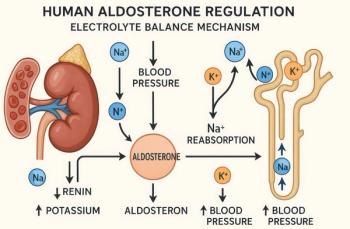
Gene Variants Affect Beta-Blocker Response
BALTIMORE -- For an investigational beta-blocker found to have no beneficial effect on heart failure the story may not be over.
BALTIMORE, July 10 -- For an investigational beta-blocker found to have no beneficial effect on heart failure, the story may not be over.
A retrospective analysis of DNA data from a large randomized placebo-controlled trial of the investigational beta-blocker bucindolol shows that the drug had beneficial effects for patients with one common polymorphism in the gene for the ?1-adregenergic receptor,
For patients with a less common polymorphism, there was no benefit, according to Stephen Liggett, M.D., of the University of Maryland, and colleagues, reported in the online issue of the Proceedings of the National Academy of Sciences.
Overall, investigators reported in 2001, the 2,708-patient Beta-Blocker Evaluation of Survival (BEST) trial did not show a benefit for the drug in patients with New York Heart Association (NYHA) functional class III or IV heart failure and a left ventricular ejection fraction (LVEF) of 35% or lower.
Dr. Liggett and colleagues hypothesized that variation in the gene for the ?1-adregenergic receptor, the target of beta-blockers, might have played a role in the result. They analyzed genetic material from 1,040 BEST participants who had previously agreed to DNA substudies.
The gene for the ?1-adregenergic receptor is highly conserved, the researchers noted, and in most animals sequenced is invariant. However, in humans, a polymorphism means that either an arginine or a glycine is found at position 389 of the protein. About 50% of people are homozygous for the arginine and 30% for glycine; the remainder carry arginine on one allele and glycine on the other, the researchers said.
The difference does not affect the likelihood of getting heart failure, the researchers said, but patients homozygous for the arginine have hearts with greater agonist-promoted contractility than those who are either homozygous for glycine or carry one allele with arginine and one with glycine.
For the substudy, the researchers compared arginine homozygotes with carriers of glycine, taking either placebo or bucindolol. They found that:
- Arginine homozygotes treated with bucindolol had a 38% increase in survival compared with those getting placebo. The hazard ratio was 0.62, with a 95% confidence interval from 0.40 to 0.96; the finding was significant at P=0.03.
- The same comparison in glycine carriers revealed no difference: The hazard ratio was 0.90, with a 95% confidence interval from 0.62 to 1.30; P=0.57.
- Arginine homozygotes treated with bucindolol were less likely to be hospitalized compared with placebo patients with the same genotype. The hazard ratio was 0.64, with a 95% confidence interval from 0.46 to 0.88; P=0.006. There was no effect for Gly carriers given the drug.
- As might be expected, for the combined outcome of time to first hospitalization for heart failure or to death, arginine homozygotes-bucindolol patients had a benefit compared to arginine homozygotes-placebo patients. The hazard ratio was 0.66, with a 95% confidence interval from 0.50-0.88; P=0.004, but there was no effect for bucindolol-treated glycine carriers.
"For the first time, we have a genetic test that will help guide us to the best treatment for individual patients with heart failure and provide what has been called personal medicine," Dr. Liggett said in a statement.
While beta-blockers are widely used, their effect on any given patients is unpredictable, according to co-author Michael Bristow, M.D., Ph.D., of the University of Colorado School of Medicine.
"It has been difficult to explain the variability of response to treatment, even among patients with similar ages and other characteristics," he said. "We hypothesized that the variability in response to beta-blockers was due to important functional genetic variation in the beta-1 receptor, and this indeed appears to be the case."
Dr. Bristow is president and CEA of ARCA Discovery Inc., of Denver, Colo., which is preparing a new drug application for bucindolol. Dr. Liggett is a consultant to the company.
Newsletter
Enhance your clinical practice with the Patient Care newsletter, offering the latest evidence-based guidelines, diagnostic insights, and treatment strategies for primary care physicians.

































































































































